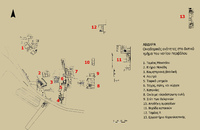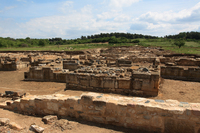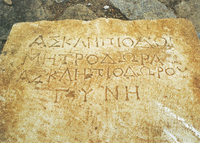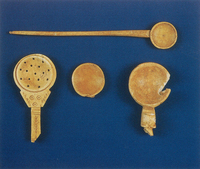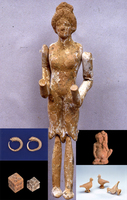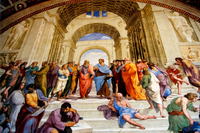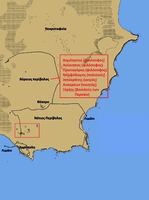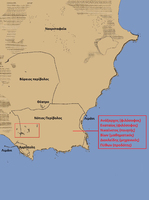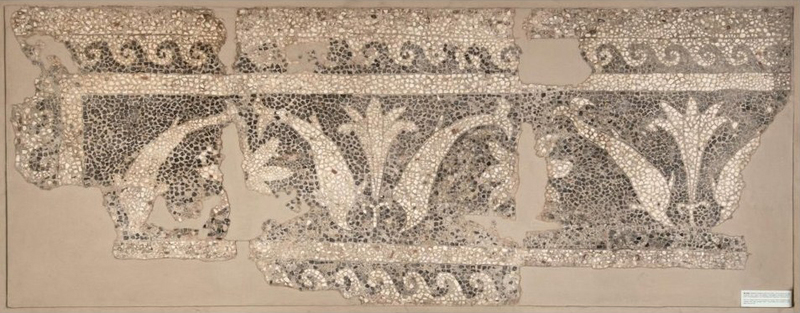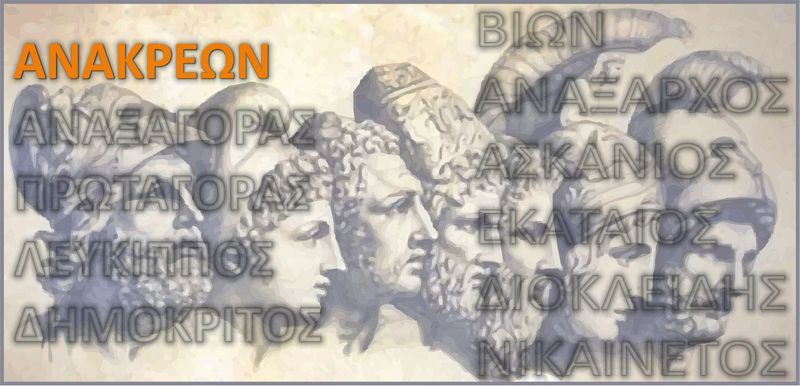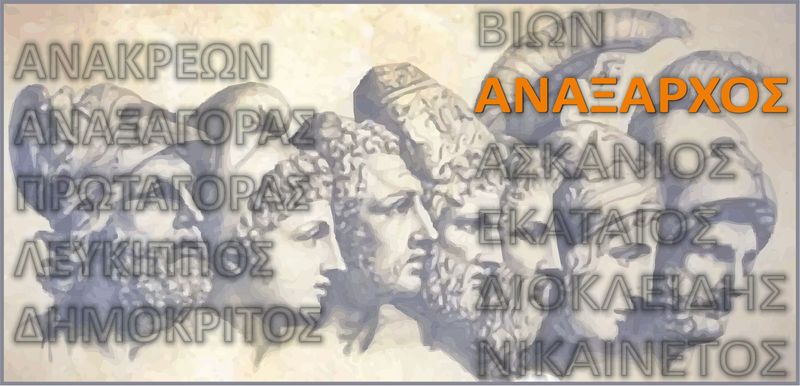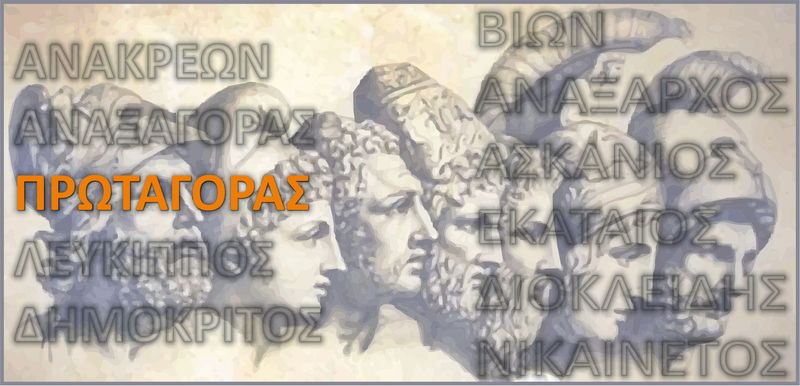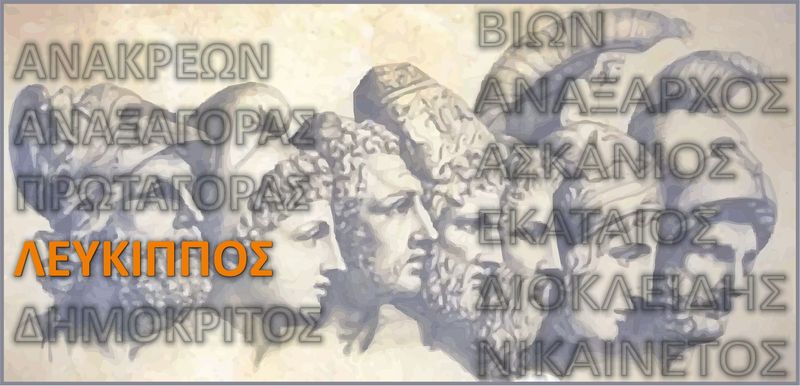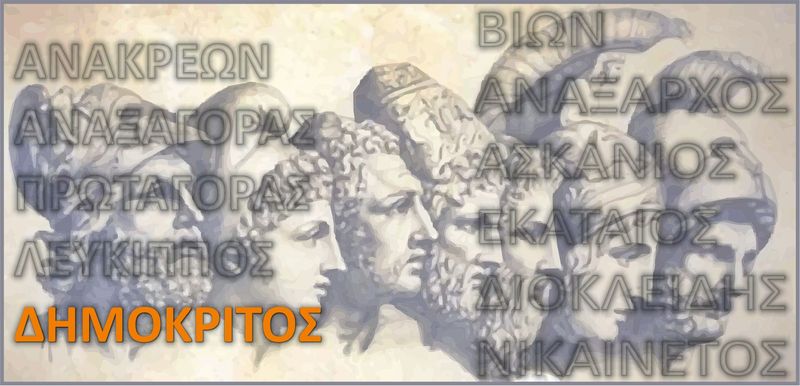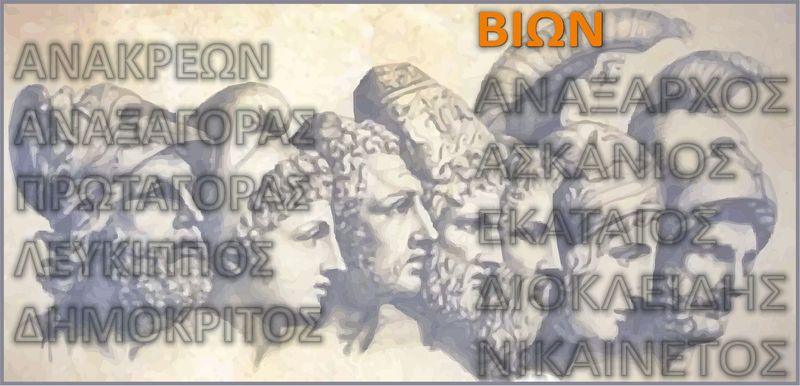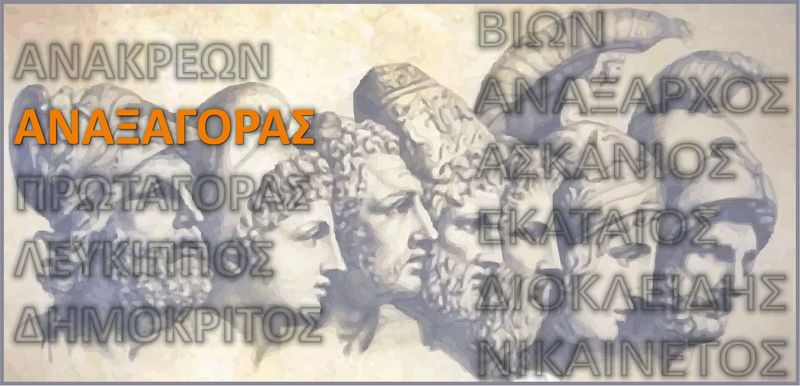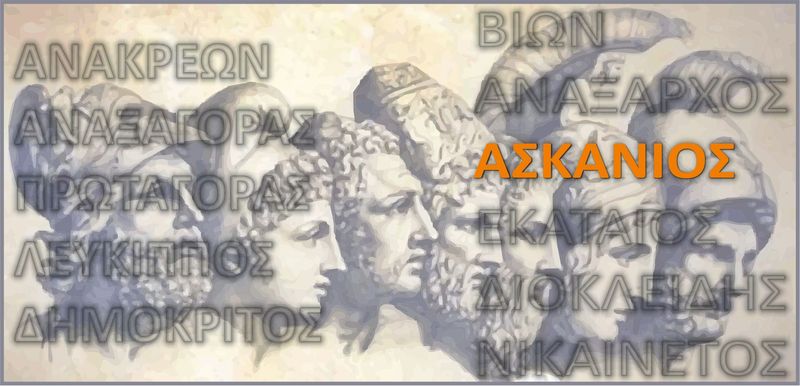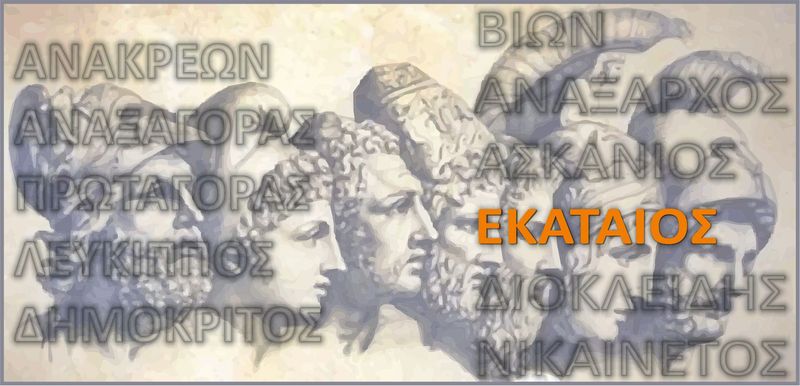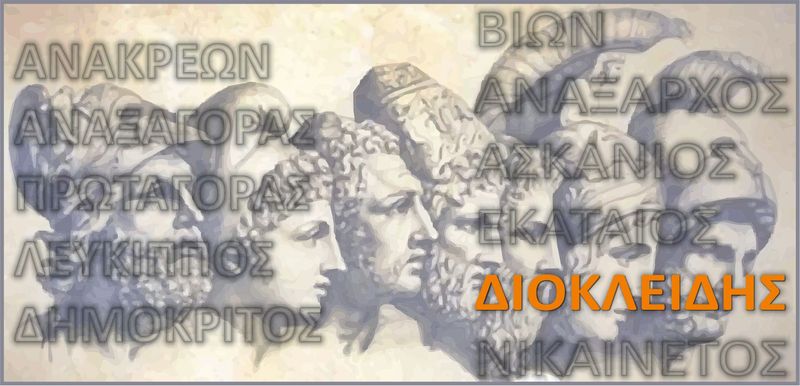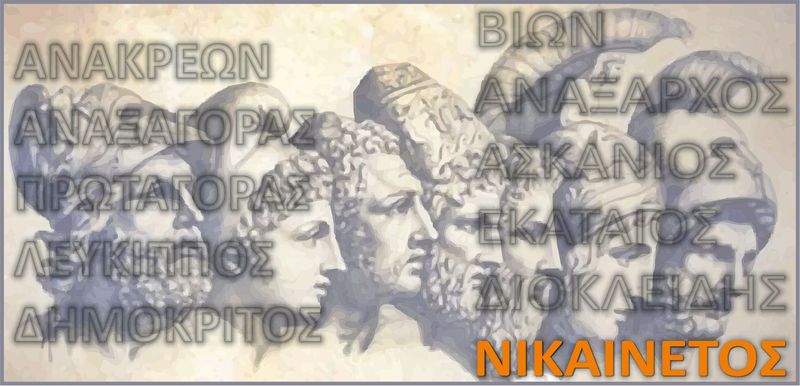Archaeological site of Avdira
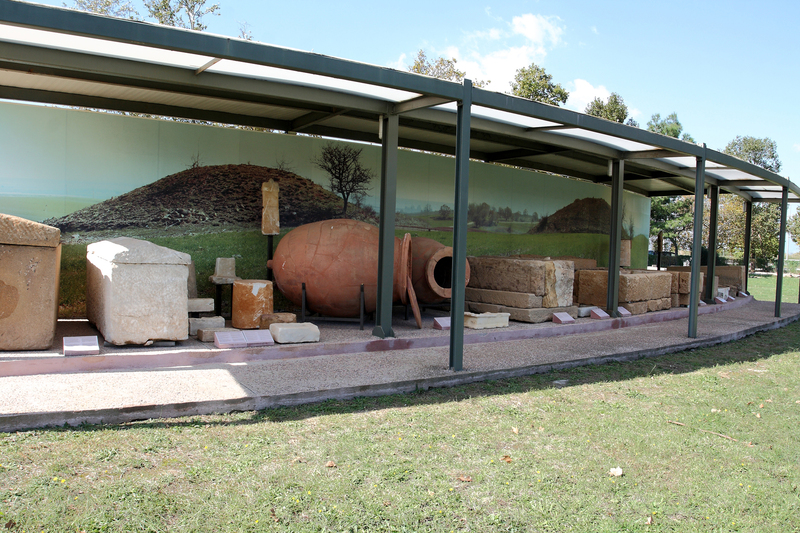

In the picture we see, at the first level, the wall of a building of the Roman Imperial period and at the second level, we see the quadrangular funerary monument base of the 1st century BC. At the third level we have the city walls of the 4th century, while in the background, houses of Roman imperial times.
In the picture: a headstone, dated in the 2nd century BC which refers to Asklipiodoros’ son, Nicanor and his wife Mitrodora with the inscription: NICANOR ASKLIPIODOROU / MITRODORA ASKLIPIODOROU.
Bone utensils,which were drug dozers during the Roman Imperial period.
Various findings from the archaeological site as: a clay doll with movable parts (plagona), gold earrings, dices, clay figurines, and clay, baby rattles. They give us valuable information on the everyday life of the residents of ancient Abdera. They are exhibited in the Archaeological Museum of Abdera.
The mosaic depicting dolphins and lilies was found in a house floor, dated in the 3rd century BC and today it is exhibited in the Archaeological Museum of Abdera.
Besides the economic and urban development of the city, the sciences and the arts develop and the city becomes more widely known by the eminent Abderitians, who travel all over the known Greek world.
During the first period of the city’s development, which is structurally defined by the North Precinct, the most famous, important Abderitians of the era were: the poet Anacreon, the sophist Protagoras, the father of atomic theory, Democritus and his teacher Leucippus, but also the politician Nymfodoros. Meanwhile, in the region, important historical events took place such as the passage of the Persians, initially with Darius and later Xerxes, and the participation of the city in the first Athenian Alliance.
During the second time period of the city, which is structurally defined by the south precinct, where today lays the archaeological site, the most famous, important Abderitians are: Vion the mathematician, Anaxarchos the philosopher, the philosopher Ascanius, the philosopher Hecataeus, the engineer Dioclides but also the poet Nikenetos.
In the area took place important, historical events, such as: the Triballians’ invasion in the city. The competition with neighboring areas, and the involvement of Abdera in the Second Athenian Alliance. The rise of the Macedonians and later the conquest of the region by the Romans, have left indelible marks in the area.
Anakreon
Anacreon (about 570-485 BC). Lyric poet who was born in Teos in Asia Minor, still young settles in Abdera, with the second colonization in 545 BC. He is distinguished, along with the poets Sappho and Alcaeus from Lesvos, for the expression of the most hidden feelings of the individual and the joy of life. He also lived in the courtyard of the tyrant Polycrates of Samos. His poetry was mainly entertaining for the luxurious banquets and he creates a school, where the later imitations of his poems were called 'Anakreontia'.
Anaxagoras Klazomenios
Anaxagoras Klazomenios (about 500-428 BC). He was a philosopher and astronomer. He lived for many years in Athens, but was forced to leave the city when accused of impiety. His works are preserved in fragments, but reveal a wide range of knowledge of science. In his book "About Nature" he describes the phenomenon of eclipses of the Sun and the Moon.
Protagoras from Abdera
Protagoras (about 485-420 BC).He was born in Abdera, he was a philosopher and a sophist, a contemporary and a student of Democritus. He is among the first ones to create the philosophical current of the sophists. He teaches in Athens, where Pericles assigns legislative work to him. Agnostic but formidable orator, Protagoras was convicted of contempt of gods and was eventually drowned when the ship on which he was traveling, sank, while he was abandoning Athens. Protagoras’ theory is known from the homonymous work of Plato.
Leucippus
Leucippus (about 480-400 BC). He was probably born in Miletus of Asia Minor and due to the destruction of his hometown by the Persians, he eventually resorted to Abdera. He was a philosopher, a student of Zeno of Elea and founded a school in Abdera. He was recognized as the founder of the atomic theory, which was later developed by his student Democritus. His work "The Grand Decoration" which describes his actual theory and the epistemological treatise “About the Mind" are the most famous of his works.
Democritus
Democritus (about 470-390 BC). He was born in Abdera , he was a philosopher and a student of Leucippus. He was considered to be the father of atomic theory. Democritus has travelled to many places, and was a prolific polymath with wide knowledge of many disciplines, such as ethics, poetry, martial art, painting, physics, mathematics, grammar and phonetics. His works probably were lost by his opponents. Only small excerpts from later authors and the titles of his works are preserved. He had the nickname 'smiley', because he was often cheerful and he used to face the everyday life optimistically, believing that laughter is the source of life.
Vion
Vion (about 430-370 BC). He was born in Abdera and he was a mathematician, an astrologer, a philosopher, a student of Democritus and he has travelled to many places. Vion, is the first to formulate the theory of the Earth’s sphericity. He supported among others that there are regions on the planet, which have six months day and six months night.
Anaxarchos
Anaxarchos (about 380-320 BC). He was born in Abdera. He was a philosopher and a student of Diogenes of Smyrna. His passion for life is summed up in the phrase: "Blissful life", from which he got the nickname "blissful". As a personal friend of Alexander the Great, he follows his campaign for the conquest of Asia. Many ancient writers considered him to be a flatterer and bad influence for Alexander. He died agonizingly in Cyprus due to the tyrant Nikokreonta.
Ascanius
Ascanius. We do not know exactly when he was born and when he died. But he was from Avdera, a philosopher and a student of Pyrronos, who traveled with Anaxarhos in Asia. According to later sources, Ascanius preserves the philosophy of his teacher Pyrronos "about agnosticism."
Hecataeus
Hecataeus (about 340-280 BC). He was born in Abdera. He was a philosopher, a traveler, a historian and a student of Pyrronos. His works, such as criticism of the poems of Omiros and Hesiod, include, according to later authors, the "About Egyptians" and "About Jews." Today, none of his works survives.
Dioclides
Dioclides (about the end of the 4th century BC.). He was born in Abdera. He was an engineer and devised many siege engines. The most famous, the one called "Elepolis" was used, in 305-304 BC, by Demetrius the Besieger, for the conquest of Rhodes. Demetrius the Besieger was the son of Antigonus, general of Alexander the Great.
Nikenetos
Nikainetos (3rd century BC.). He was born in Abdera. He was an epic poet and epigrammatist. He lived in Samos. He is known for his epic poem "Samos History", another idyllic poem and many epigrams.


